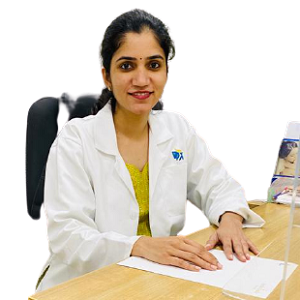Fetal medicine is a specialized branch of medicine that deals with the diagnosis and treatment of conditions affecting a fetus during pregnancy. Learn about the types of conditions treated by fetal medicine specialists and when to see one for expert care.
Expectant mothers and their families can turn to fetal medicine specialists for expert care and support during pregnancy. These specialists are trained in the diagnosis and treatment of conditions affecting a fetus
Types of conditions treated by Fetal Medicine Specialists:
One of the main goals of fetal medicine is to identify and treat conditions as early as possible to improve the chances of a healthy pregnancy and delivery. Some common conditions include:
- Birth defects: Fetal medicine specialists can use diagnostic techniques to identify birth defects during pregnancy.
- Preterm labor: Specialists can help identify the cause and provide treatment to delay delivery until the baby is more mature.
- Growth abnormalities: Specialists can use ultrasound to monitor fetal growth and identify any abnormalities.
- Placental problems: Specialists can provide treatment for complications caused by placental issues.
- Multiple pregnancies: Specialists can provide specialized care for women carrying multiple fetuses.
Identifying Symptoms and Risks:
There are several symptoms and risks that fetal medicine can help identify, including:
- Abnormal fetal growth: This can include conditions such as intrauterine growth restriction (IUGR), where the fetus is smaller than expected, or macrosomia, where the fetus is larger than expected.
- Birth defects: These are abnormalities in the structure or function of the fetus that are present at birth. They can range from minor defects that have little impact on the baby's health to severe defects that can cause serious health problems.
- Preterm labor: This is when labor begins before the 37th week of pregnancy. Preterm labor can increase the risk of complications for both the mother and the baby.
- Pregnancy complications: Pregnant women with certain conditions, such as diabetes or high blood pressure, may be at increased risk for complications during pregnancy.
When should you see a fetal medicine specialist?
If you are pregnant and have any concerns about the health or development of your unborn child, it is important to speak to a fetal medicine specialist if additional testing or specialized care is needed. Some common reasons to see a fetal medicine specialist include:
- You have a family history of birth defects or genetic disorders.
- You have an existing medical condition, such as diabetes or hypertension, that may impact your pregnancy.
- You are carrying multiple fetuses.
- You have experienced complications during previous pregnancies.
- You are over the age of 35, as the risk of certain complications increases with age.
Preventive measures:
There are several things that pregnant women can do to help prevent complications in fetal medicine:
- Maintain a healthy lifestyle: This includes eating a balanced diet, getting regular exercise, and avoiding tobacco, alcohol, and illegal drugs.
- Attend regular prenatal visits: Prenatal visits allow the doctor to monitor the health of both the mother and the baby, and to identify and address any potential issues.
- Take prescribed medications as directed: If the doctor prescribes any medications during pregnancy, it is important to take them as directed to help prevent complications.
In conclusion, Fetal medicine involves the care and treatment of fetuses and pregnant women through the use of diagnostic and therapeutic techniques. Pregnant women should see a doctor regularly and follow a healthy lifestyle to prevent complications.
Request an appointment at Apollo Cradle, Delhi-NCR - Chirag Enclave. Call 1860-500-4424 to book an appointment.
Pregnant women can maintain a healthy lifestyle, attend regular prenatal visits, and take prescribed medications as directed to help prevent complications in fetal medicine.
The treatment options for fetal medicine conditions will depend on the specific condition being treated and the stage of pregnancy. Treatment options may include medications, surgery, or other therapeutic interventions.
No, fetal medicine can be used to assess and manage the health and well-being of fetuses and pregnant women in all types of pregnancies, including high-risk pregnancies.
No, fetal medicine can benefit both the mother and the baby by helping to ensure the health and well-being of both during pregnancy.
Yes, fetal medicine can be used to diagnose birth defects However, the feasibility and effectiveness of treatment will depend on the specific birth defect and the stage of pregnancy.
Our Doctors
Treatments
- Blood Tests
- Down Syndrome Screening
- Early Anomaly Scan
- Fetal Anomaly Scan
- Fetal Echocardiography scan
- Fetal Ultrasound
- Fetal Well-Being Scans With Fetal Doppler
- Nuchal Translucency (NT Scan)
- Pre-eclampsia Screening
- Prenatal Screening & Test
- Screening For Maternal Infections
- Surveillance And Monitoring Of Twin Pregnancies
- Tests For Thalassemia And Sickle Cell Disease
- Viability Scan

 95 Patient Satisfaction Score
95 Patient Satisfaction Score


